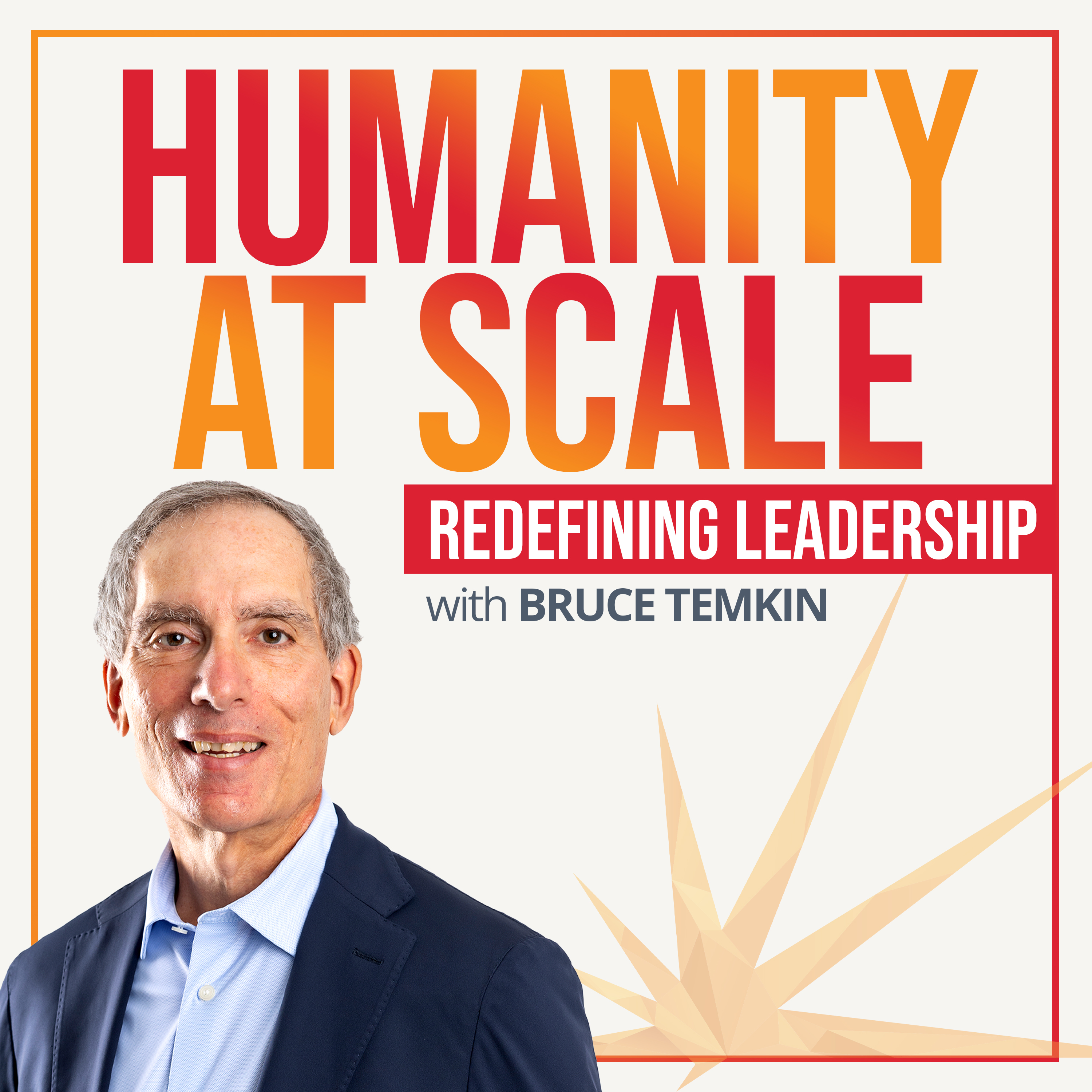Beyond Right and Wrong: Rethinking Moral Disagreements with Kurt Gray
April 17, 2025

How can leaders create a culture where people with different perspectives collaborate and thrive?
In this episode of Humanity at Scale, host Bruce Temkin speaks with psychologist and neuroscientist Kurt Gray, Professor of Psychology and Neuroscience at UNC, Chapel Hill, to explore how leaders can navigate moral complexity and foster empathy in organizations. They discuss how perceptions of harm shape moral divides, why storytelling builds understanding better than facts, and how power impacts empathy. Listen in as Kurt shares actionable insights into making ethical decisions transparent, designing inclusive systems, and using emotional intelligence to lead with both clarity and compassion in these morally challenging times.
How can leaders create a culture where people with different perspectives collaborate and thrive?
In this episode of Humanity at Scale, host Bruce Temkin speaks with psychologist and neuroscientist Kurt Gray, Professor of Psychology and Neuroscience at UNC, Chapel Hill, to explore how leaders can navigate moral complexity and foster empathy in organizations. They discuss how perceptions of harm shape moral divides, why storytelling builds understanding better than facts, and how power impacts empathy. Listen in as Kurt shares actionable insights into making ethical decisions transparent, designing inclusive systems, and using emotional intelligence to lead with both clarity and compassion in these morally challenging times.
What you will learn:
- How moral disagreements stem from different perceptions, not differences in values
- Why personal stories and vulnerability are more effective than facts in bridging divides
- The "Charitable Pause" principle for preventing knee-jerk reactions
- How excess power can erode empathy
- Why organizations need to promote collaboration over competition
- How to make ethical decisions transparent
- Recognizing that opposing viewpoints often come from a shared desire for protection
- Why AI must be aligned with human moral psychology
- The critical role of emotional intelligence in leading through moral complexity
Kurt Gray is a Professor of Psychology and Neuroscience at the University of North Carolina at Chapel Hill, where he directs the Deepest Beliefs Lab and the Center for the Science of Moral Understanding. He also teaches organizational ethics at UNC’s Kenan-Flagler Business School. A leading voice on the psychology of morality, politics, and AI, his work appears in The New York Times, HBR, and Nature. He is the author of The Mind Club and the forthcoming book Outraged, exploring how to bridge moral and political divides.
Episode Resources:
Humanity At Scale: Redefining Leadership is handcrafted by our friends over at: fame.so